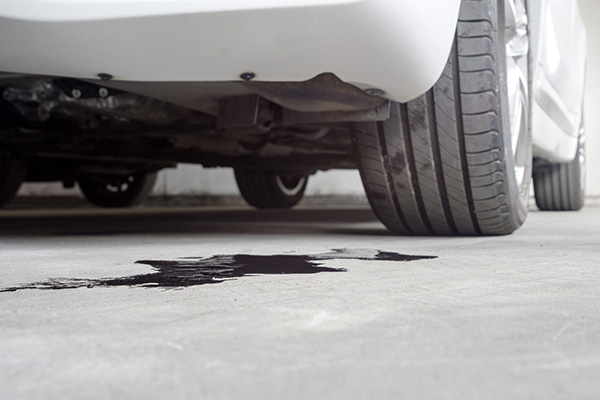
Winter driving in Yakima means your vehicle is exposed to freezing overnight lows and chilly daytime temperatures. While most drivers worry about traction and icy roads, your car’s fluids also face unique stress in the cold. Fluids contract as temperatures drop, seals harden, and metal components shrink slightly. These combined effects make leaks far more common in winter than in warmer months.
Why Seals and Gaskets Fail in the Cold
Your vehicle relies on dozens of rubber seals and gaskets to keep oil, coolant, and transmission fluid contained. Cold air causes rubber to stiffen, lose flexibility, and become brittle. When you start the engine, these seals are suddenly exposed to rapid heat expansion, which can create cracks or gaps. Even a small tear can allow fluid to escape, especially when pressure builds inside the system.
Motor Oil Leaks in Winter
Oil leaks are among the most common cold-weather issues. When oil thickens in freezing temperatures, it doesn’t circulate as easily. That thicker consistency puts extra pressure on seals and gaskets around the oil pan, valve covers, and crankshaft. If one of those seals is already weakened, a noticeable leak can develop quickly. Drivers may first notice dark spots on the driveway or a burning smell if oil drips onto hot engine parts.
Coolant System Vulnerabilities
Your cooling system faces an extra challenge in winter because coolant expands and contracts with temperature changes. Radiator hoses, water pump seals, and the radiator itself are common leak points in cold weather. If your vehicle’s coolant mixture isn’t strong enough for freezing weather, ice crystals can form inside the system. These crystals increase pressure and can rupture hoses or even crack the radiator. A sweet smell near the hood or visible steam after driving are early warning signs of a coolant leak.
Transmission and Power Steering Leaks
Automatic transmission fluid and power steering fluid are also at risk during winter. Both systems use pressurized fluid to operate, and colder temperatures make the fluid less flexible. As a result, pressure increases in the lines, stressing old seals and hoses. In many cases, small leaks that go unnoticed in the summer become much larger once freezing weather sets in. Sluggish shifting or difficulty turning the steering wheel are possible side effects of these leaks.
Brake Fluid Concerns
Brake systems are generally sealed tightly; however, in very cold weather, tiny leaks can appear around brake calipers, master cylinders, or lines. Brake fluid absorbs moisture over time, and when that moisture freezes, it weakens seals and corrodes metal lines. Any visible puddle near a wheel or a spongy brake pedal should be taken seriously. Unlike other leaks, brake fluid loss directly compromises safety and requires immediate repair.
Signs That Leaks Are Starting
- Puddles or spots under the car after it has been parked overnight
- Unusual smells such as burning oil or sweet coolant vapor
- Low fluid warnings on the dashboard
- Changes in performance, like rough shifting, harder steering, or overheating
Catching leaks early saves money and prevents secondary damage to vital components.
How Preventive Maintenance Helps
While you can’t control the weather, you can reduce the risk of winter leaks with consistent maintenance. Replacing old rubber hoses, servicing your coolant system, and inspecting gaskets before freezing weather arrives will extend the life of your fluids and keep them where they belong. Using the correct oil viscosity for cold climates also helps reduce strain on the engine.
Stay Ahead of Fluid Leaks With Westside Car Care in Yakima, WA
If you’ve noticed new spots on your driveway or strange smells after driving, cold temperatures may be revealing hidden weaknesses in your vehicle. At Westside Car Care in Yakima, WA, our technicians conduct thorough inspections of the oil, coolant, brake, and transmission systems to identify and address leaks before they lead to breakdowns.
Don’t let the winter cold damage your car—schedule your service today and keep your vehicle protected all season long.